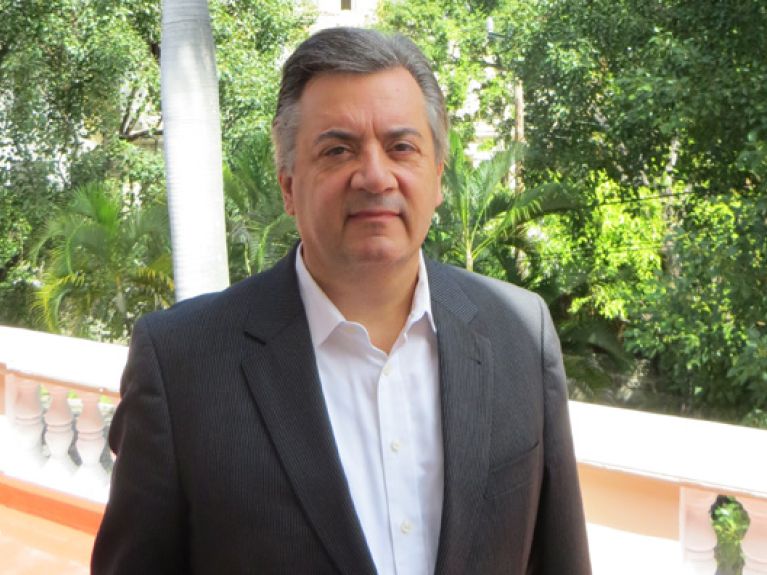Ambassador Thomas Karl Neisinger in Cuba
Ambassadors and senior German employees in international organizations present insights into their work in the deutschland.de series “Foreign posting”. Part 18: Thomas Karl Neisinger in Cuba.

Which subjects currently define relations between Germany and your host country?
We sense that the period of no dialogue is coming to an end, and are both delighted that this is the case. This is partly thanks to the process of negotiation between the EU and Cuba which began in 2014 and the resumption of relations between Cuba and the USA. However, the real turning point came when Federal Foreign Minister Steinmeier visited Cuba in July 2015 and signed a joint declaration that paved the way for a new bilateral relationship. The focus is now on three things: the initiation in February of regular dialogue on all political issues, including human rights; the rapid conclusion of a cultural agreement, designed among other things to allow a Goethe-Institut to be set up in the near future; and the establishment of an office to promote trade and investment.
Which special ties are there between your host country and Germany? In which areas would you like to deepen relations?
There were close ties early on, especially on the economic level: Bayer has been operating in Cuba for 120 years. There was a lively economic exchange with the GDR (East Germany) until 1989, which companies from Germany’s “new” federal states are now reviving. Many thousands of scholarship holders and contract workers from GDR days still feel an affinity with Germany even today, and therefore serve as “Germany ambassadors”. We especially cultivate our contact with them. What is more, memories of Alexander von Humboldt’s two extended stays in Cuba shortly after 1800 remain alive to this day. We should and will follow up on his legacy.
Federal Foreign Minister Steinmeier and Economics Minister Gabriel visited Cuba recently. Are the bilateral relations experiencing a new dynamism? And if so, what concrete signs are there of this?
The new political contacts have sparked enormous interest in Cuba back home in Germany: visitors from the fields of politics, business, culture and indeed all other areas of society are coming to Cuba to learn about the changes which we all hope to see. The new quality of the relations makes an open dialogue possible about all subjects, even tricky issues like the human rights situation.
On what basis is economic cooperation being established with Cuba? How many German companies have a base there, what are the trade and investment figures, and how many German tourists visit each year?
Tourism boomed in 2015, with more than 175,000 German tourists travelling to Cuba – a 26 percent increase on the previous year. Figures for trade and investment with Cuba, on the other hand, are not commensurate with the potential of what is the Caribbean’s biggest island by far, with its population of over 11 million: roughly 50 German companies in all are active in Cuba, while bilateral trade was worth 230 million euros in 2014. Economics Minister Gabriel was accompanied during his visit by more than 60 business representatives who were able to learn more about Cuba’s potential as a location for business and investment. For its part, the Cuban government is well aware that it needs to do more to make Cuba attractive to foreign investors.
Often there is a difference between the interior and exterior view of a country. In your personal experience, what needs to be said about Cuba?
Cuba tends to have a polarizing effect in the political debate in Germany, and not without good reason. In the “58th year of the Revolution”, however, many Cubans often take a relaxed view of their more recent history and are willing to express their opinions, concerns and wishes openly in personal discussions. For this reason, I believe it is a good thing, and indeed important, for more and more German visitors to get to know Cuba, its people, history and culture while touring the country and staying in private accommodation.

